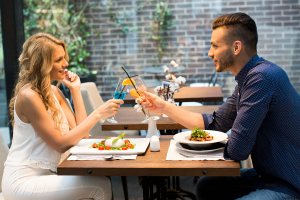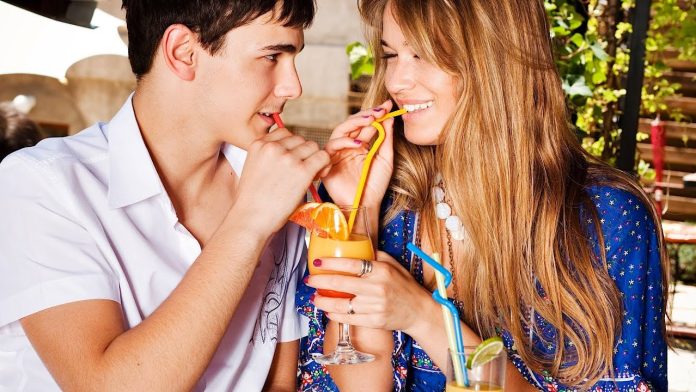Introduction: Why Mutual Friends Still Matter in Modern Dating
Dating has evolved dramatically in the past decade. Once upon a time, people relied heavily on introductions through friends, family, or colleagues. Fast forward to today, and apps like Facebook Dating dominate the way singles connect. Yet, despite all the algorithms, swipes, and prompts, one timeless factor still plays a significant role in building trust and connection: mutual friends.
On Facebook Dating, mutual friends are more than just shared social connections. They can act as a trust signal, a conversation starter, and sometimes even a safety net. But they can also complicate things when boundaries blur between dating and your existing social circle.
In this article, we’ll explore the role of mutual friends in Facebook Dating matches — how they influence first impressions, boost trust, create opportunities for conversation, and what risks you should be mindful of when mutual friends are part of the equation.

1. What Does “Mutual Friends” Mean on Facebook Dating?
Before diving deeper, let’s clarify what the term actually means in this context.
When you connect with someone on Facebook Dating, the app may highlight if you share any mutual friends. These are people you’re both connected to on your main Facebook accounts.
For example:
-
You match with someone, and Facebook shows you both know Sarah, a former college classmate of yours.
-
Or you realize that your potential match is also in the same hiking group as one of your cousins.
This simple overlap can change the way you perceive the match — positively or negatively.
2. The Psychology of Familiarity and Trust
One of the strongest roles mutual friends play in Facebook Dating is building trust through familiarity.
Why It Matters
Humans are wired to seek safety in the familiar. Meeting a stranger online often carries risks, but discovering that you have mutual friends reduces the sense of the “unknown.”
Social Proof in Action
-
If you see that your match knows your close friend, you may assume they’re trustworthy.
-
It works like a referral system — if they’re connected to people you trust, they must share at least some of the same values.
This doesn’t guarantee safety, but it does influence first impressions significantly.
3. Mutual Friends as Conversation Starters
Awkward silences in dating apps are common, especially when you don’t know what to say after the initial “Hi.” Mutual friends provide a natural entry point for conversation.
Examples:
-
“I noticed you know David too — how do you two know each other?”
-
“You’re friends with Jenna? She and I used to work together; she’s hilarious!”
Not only do these openers feel organic, but they also spark deeper discussions about shared experiences and networks.
4. The Role of Mutual Friends in Building Compatibility
Mutual friends can also give clues about compatibility.
Shared Social Circles = Shared Interests
If you both know people from a running club, there’s a good chance you both enjoy fitness. If your mutual friend is part of a book club, it suggests intellectual overlap.
Reinforcing Shared Values
Social circles often reflect personal values. When you have overlapping friends, it signals a potential alignment in lifestyle, habits, or even moral compass.
5. The Safety Net Aspect of Mutual Friends
Meeting someone online can feel risky, but having mutual friends acts as a built-in safety net.

How It Helps
-
Background assurance: You can casually ask your friend about the person before meeting.
-
Emergency contact: If things go wrong, you know at least one mutual friend who could provide context.
Example:
Before agreeing to meet, you might reach out to your mutual friend with a simple:
“Hey, I noticed you know Alex — what’s he like?”
A trusted friend’s perspective can either confirm your interest or save you from a potential mistake.
6. When Mutual Friends Complicate Things
While mutual friends can be a positive, they can also create awkward situations.
Potential Downsides
-
Privacy concerns: You may not want your friends to know about your dating life yet.
-
Overlapping circles: If things don’t work out, it could create tension in your shared social group.
-
Judgment: Some people fear mutual friends might gossip or judge their dating choices.
Example:
Imagine dating someone from Facebook Dating, and later running into them at a mutual friend’s wedding after the breakup. Awkward, right?
7. Cultural and Social Factors
The role of mutual friends in Facebook Dating can vary depending on cultural or social context.
In Tight-Knit Communities
In smaller towns or cultural communities, mutual friends are almost inevitable. They can build instant trust but also limit privacy.
In Larger Cities
In big cities, having no mutual friends may be more common and less concerning. In this case, discovering even one shared friend might feel like a significant connection.
8. Do Mutual Friends Really Guarantee Safety?
This is an important question. Just because someone has mutual friends doesn’t mean they’re automatically safe or trustworthy.
The Reality
-
Some people maintain large, casual Facebook networks with weak ties.
-
Mutual friends may not know the person well enough to vouch for them.
-
Bad actors can still exist in overlapping social circles.
Mutual friends should be seen as a helpful signal, not a guarantee.
9. How to Handle Mutual Friends in Your Profile
You can manage how your mutual friends appear on Facebook Dating.
Tips:
-
Be mindful of who appears as your mutual connections.
-
If you’re uncomfortable, adjust privacy settings to limit profile overlap.
-
Remember that Facebook Dating keeps your dating profile separate from your main Facebook, so matches won’t appear in your newsfeed.
10. Using Mutual Friends as a Screening Tool
Smart daters use mutual friends strategically.
Questions to Ask Yourself:
-
Does the mutual friend know this person well?
-
Do I trust this mutual friend’s judgment?
-
Would I feel comfortable asking them for insight?
This thought process can help filter matches before meeting in person.
11. Real-Life Examples
Example 1: Mutual Friends Build Confidence
Jane matched with Mike on Facebook Dating. At first, she was hesitant, but she saw they had three mutual friends, including her coworker. She casually asked her coworker about Mike, who reassured her he was genuine and kind. That reassurance gave her the confidence to meet him — and they ended up dating long-term.
Example 2: Mutual Friends Create Awkwardness
Chris matched with someone and later realized they both knew his ex-girlfriend’s best friend. The overlap made things uncomfortable, and both decided not to pursue the connection further.
12. Should You Ask a Mutual Friend for Insight?
This depends on your comfort level.
Pros
-
You gain perspective from someone who knows them offline.
-
It may prevent surprises later.
Cons
-
It might feel invasive to involve friends early on.
-
Some people prefer to keep dating private until things are serious.
Best practice: Ask casually and respectfully, without prying too much.
13. The Role of Mutual Friends in Long-Term Relationships
If a Facebook Dating match turns into a long-term relationship, mutual friends can play an even bigger role.
Benefits
-
Easier integration into each other’s social lives.
-
More opportunities to bond over shared experiences.
-
Greater social support from overlapping circles.
Challenges
-
Increased risk of gossip or opinions from friends.
-
Breakups may affect not just the couple, but the broader friend group.
14. Mutual Friends vs. No Mutual Friends: Does It Matter?
Some people place too much emphasis on mutual friends, while others dismiss it entirely.
The Balanced Approach
-
Mutual friends can help build trust, but they shouldn’t be the deciding factor.
-
A strong connection can form even without shared networks.
Remember, compatibility comes from shared values, goals, and chemistry — not just overlapping contacts.
15. Tips for Navigating Mutual Friends on Facebook Dating
Here are some best practices to make the most of this feature:
-
Acknowledge mutual friends, but don’t overanalyze.
-
Use it as a conversation starter, not a dealbreaker.
-
Don’t rely on mutual friends as your only safety measure.
-
Respect privacy: Avoid gossiping or digging too deeply into connections.
16. Safety First: Beyond Mutual Friends
While mutual friends add a layer of trust, always follow basic online dating safety guidelines:
-
Verify your match through a video call before meeting.
-
Meet in public for the first few dates.
-
Share your plans with a trusted friend.
-
Trust your instincts if something feels off.
Mutual friends can help, but they don’t replace these crucial steps.
17. Facebook’s Role in Highlighting Mutual Friends
Facebook designed its dating platform to leverage the power of social networks. Unlike other apps where everyone is a stranger, Facebook Dating leans into familiarity by showing potential overlaps in your circles.
This design choice highlights one of Facebook’s unique advantages over competitors like Tinder or Bumble: the social graph.
18. The Future of Mutual Friends in Online Dating
As online dating evolves, the role of mutual friends may become even more central.
Predictions:
-
Platforms may start using mutual connections as stronger trust signals.
-
AI could analyze the strength of mutual friendships to suggest compatibility.
-
Privacy settings will continue to adapt to balance trust with discretion.
Conclusion: Mutual Friends as Bridges, Not Guarantees
In Facebook Dating, mutual friends serve as a bridge between the digital and real worlds. They add a sense of familiarity, create natural conversation openers, and sometimes even provide a safety net.
But it’s important to remember:
-
Mutual friends are not guarantees. They enhance trust but don’t replace due diligence.
-
They can both help and complicate relationships. From building confidence to causing awkward overlaps.
-
The key is balance. Use mutual friends as one factor among many in deciding whether to connect, meet, and build something lasting.
Ultimately, successful dating — online or offline — comes down to authenticity, communication, and respect. Mutual friends simply make the journey a little less like walking into a room of total strangers and a little more like being introduced by someone you already know.

